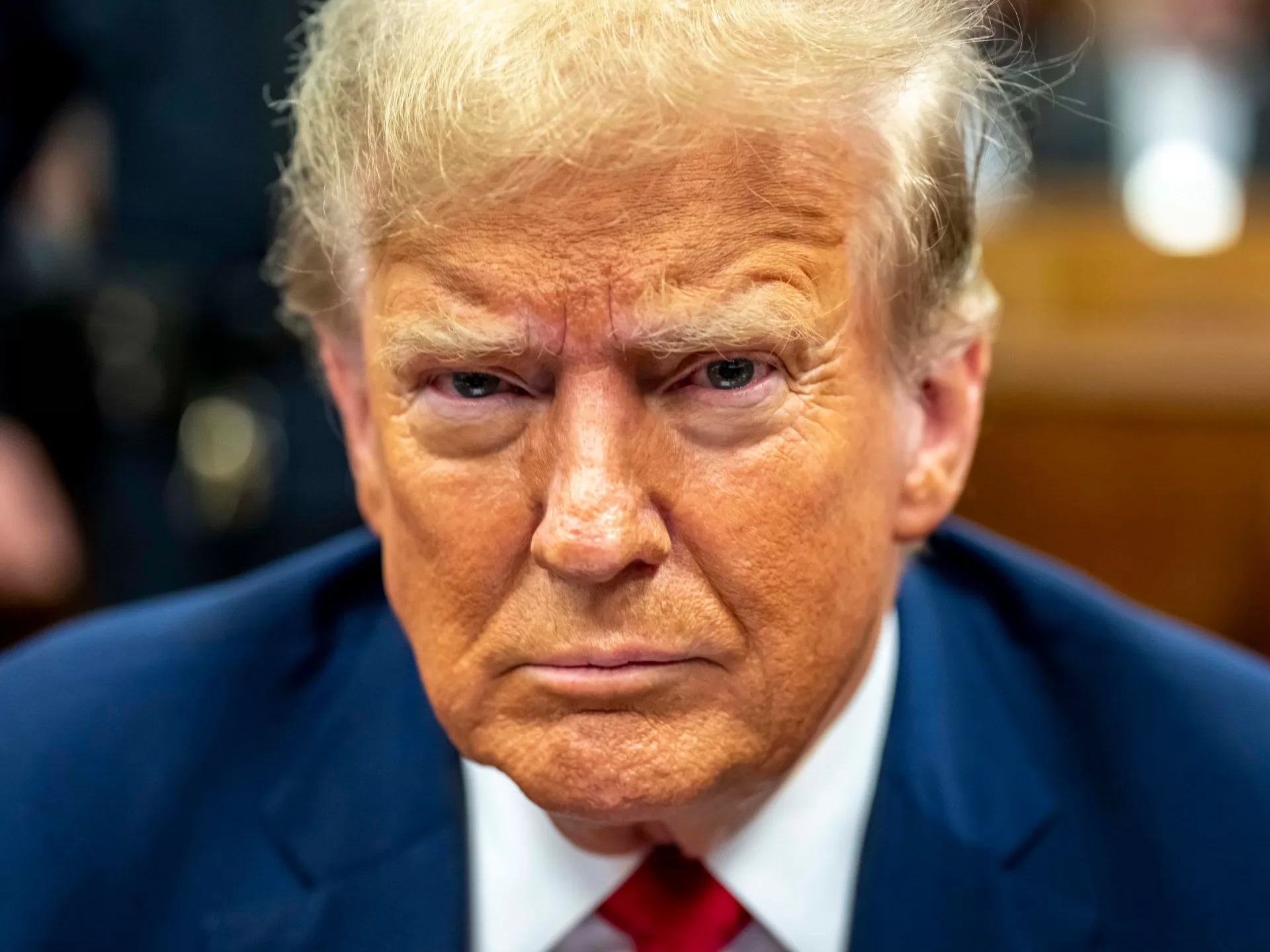In New York, Trump was again in court in a case connected to hush money payments made to adult film star Stormy Daniels in the run-up to the 2016 presidential election, in which he defeated former Secretary of State Hillary Clinton.
He is charged with 35 felony counts of falsifying business documents, with prosecutors arguing the misdeeds were done as part of a larger criminal scheme to influence the vote.
Meanwhile, in Washington, DC, the US Supreme Court heard arguments related to Trump’s claim that he is immune from federal prosecution in a separate case related to allegations that he sought to overturn the 2020 election results. Trump has argued that he should be immune from prosecution because the charges relate to actions he took while in office.
Here are the takeaways from Thursday’s proceedings:
Tabloid publisher knew ‘catch and kill’ payments ran up against campaign laws
Speaking in the New York trial, National Enquirer publisher David Pecker said he knew the effort to buy and stifle negative stories about Trump was a violation of federal election laws.
In the US, corporations must report payments made in coordination with an electoral campaign. Pecker had earlier testified that he had agreed to use his position to be the “eyes and ears” of the campaign, buying unflattering stories and then killing them before publication. In a meeting with Trump and Trump’s lawyer, Michael Cohen, he said the trio hatched the plan to stifle politically damaging stories.
Pecker was specifically referring to paying model Karen McDougal $150,000 for her story about an alleged affair with Trump. When asked if the intention in buying the story was to influence the election results, he replied: “Yes, it was.”
While the 34 falsification charges against Trump relate specifically to payments made to Daniels, prosecutors have spent the early days of witness testimony seeking to establish a wider pattern of Trump engaging in election malfeasance.
Pecker says Trump was not worried about family learning of alleged affair
The publisher said he never saw Trump indicate that he was worried about any damage to his family that might accrue from the allegations of extramarital affairs levelled by McDougal and Daniels.
Instead, he said during questioning by prosecutors that he thought the attempts at damage control were purely political. “I think it was for the campaign.”
In fact, Pecker told the prosecution that Trump never referenced his family when discussing the affair allegations.
The claim undercuts one of the central tenets of the defence’s argument that the payments to Daniels were meant to prevent personal, not political, harm to Trump.
Prosecutors say Trump has committed more gag order violations
Prosecutors have been waiting for Judge Juan Merchan to make a ruling on allegations Trump has violated a partial gag order on at least 10 occasions; earlier the judge prohibited Trump from speaking publicly about individuals involved in the case.
Prosecutors said Trump had violated the order four times since they requested that he be sanctioned on Tuesday.
Those included two new attacks Trump directed at Cohen while speaking to the press. Trump also described jurors as “95 percent Democrats”, in another alleged violation.
Prosecutors also argued that calling Pecker “a nice guy” during a campaign stop on Thursday represented a form of intimidation. They said the statement was meant to send a message to Pecker and other witnesses to be kind to Trump or face consequences.
Defence begins cross-examination
Thursday’s proceedings ended with Trump’s defence lawyer Emil Bove’s cross-examination of Pecker.
In the first part of his questioning, he attempted to portray “catch and kill” schemes as “standard operating procedure”.
Pecker noted he had previously suppressed stories on behalf of Rahm Emanuel – the former Chicago mayor and former White House chief of staff to Barack Obama – and former California Governor Arnold Schwarzenegger. The cross-examination of Pecker was set to continue on Friday.
Supreme Court seems poised to reject Trump’s claim
During a day of questioning, the justices of the US Supreme Court seemed sceptical of Trump’s claims that all of his official acts in the White House should be protected by absolute immunity.
Otherwise, argued Trump lawyer John Sauer, it could become common for former presidents to be prosecuted for unpopular policy decisions.
In response, Justice Elena Kagan asked whether a former president could escape prosecution even if he ordered a coup or sold nuclear secrets. Sauer said prosecutions of ex-presidents might not be allowed if those were determined to be official acts.
“That sure sounds bad, doesn’t it?” Kagan replied.
Trump federal case likely to be delayed
The proceedings on Thursday indicated a speedy decision from the Supreme Court is not likely.
Prosecutors have asked for a decision to move swiftly, so the federal case can go to trial before the November election.
The Supreme Court typically issues its last opinions by the end of June, about four months before the election. US District Judge Tanya Chutkan, who would preside over the trial, said pre-trial issues could take up to three months. It could also send the case back down to a lower court.
Underscoring the gravity of the case on Thursday, Justice Samuel Alito said that “whatever we decide is going to apply to all future presidents”.
